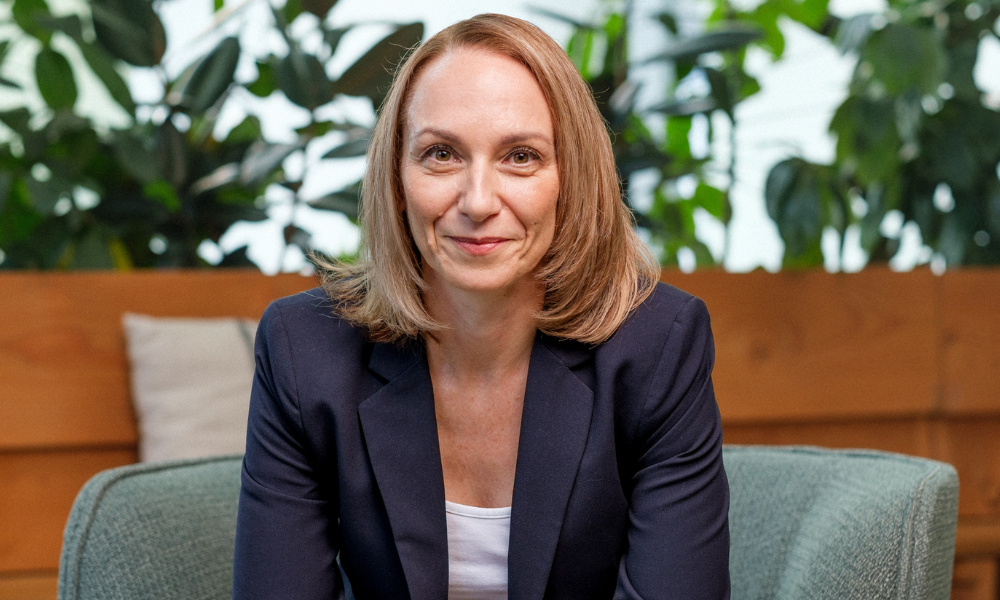
CPO Anna Wenngren talks to HRD about company’s leadership academy, use of AI and employee support

While some people may have known exactly what type of industry they wanted to work in when they were younger, for Anna Wenngren, chief people officer of SafetyCulture, the exact idea wasn’t initially clear.
“I picked doing a Bachelor of Business when I finished school because it was nice and broad,” she told HRD Australia. “Because I really didn’t know… what I wanted to do. And so I thought that that will give me lots of different options.”
But one area Wenngren said she had always been interested in was human behaviour.
“I thought about psychology, my dad was in sales so [there were] lots of different options,” she said. “But I guess the reason I went into HR was because I seemed to do really well in all of the HR subjects that were part of my degree. I guess I found my way there.”
After Wenngren joined software company SafetyCulture in 2020, she was named one of HRD’s 100 Human Resources Leaders to know in 2023. She said she was attracted to the role because of the company’s purpose in making a difference in the world.
“When I was looking for my next move, I was really looking for a company that was going to do no harm in the world, something that was actually adding a positive difference,” she said. “So that was really important to me. I wanted a mission that I could buy into, so that I could feel really proud to work at an organisation and I'd be proud to tell people that I worked there.”
One of the key initiatives that Wenngren has been involved in during her time in the business is launching a leadership academy within the business.
“It’s the biggest and boldest and probably the thing that I’m most proud of,” she said.
“We know that the secret for us to scaling the business and for team members to be able to do their life's best work is that they need leaders that are upskilling themselves and being the best version of themselves. And so our leadership academy was really designed to help unlock the potential of all of our leaders.”
It’s about more than just doing a training program where you show up, get exposed to content, and then go back to doing your day job, Wenngren said.
“We've actually created here an entire culture of accountability, where individuals need to go away from these programs and they practice the skills they've learned with their peers,” she said. “They go through an accreditation process so that we know that they're actually putting those skills into practice on the job. And then the team members are therefore reaping the benefits of that.”
The leadership academy currently prioritises people in leadership roles and more than 100 leaders have been through different programs, Wenngren said.
“But if you're an individual contributor whose manager identifies you as being someone who's high potential and a top performer, then we're also including people that meet that criteria as well,” she said.
While SafetyCulture uses AI to generate training courses, that tech is also revolutionising the HR sector, Wenngren said.
“Writing a job description has never before been easier,” she said. “But also the insights that we're able to gain from using AI and things like recruitment, and then upskilling people across the organisation.
“I think that is certainly something that people need to keep pace with and to be thinking about in their organisations.”
But one of the areas Wenngren said the company has been focusing on is how people have started to question the value and the sense of meaning that they get out of their work.
“The daily grind is a thing of the past, where now people really want to find meaning and purpose in work,” she said. “And they want to feel that their organisation cares about them as a person, that they're not just a number or resource within the business.”
As a result, the company has been introducing initiatives to ensure they support people in different areas of their life, including mental health support, paid miscarriage leave or paid domestic and family violence support, she said.
“If we're not able to show up as our best selves, we really want our people to feel comfortable sharing that with their colleagues, and with the manager and to let them know that ‘This is what's happening to me right now’ or ‘This is what I'm struggling with’,” Wenngren said.
“We really wanted to send a message through policies to the organisation that you can have these conversations about whatever's going on for you with people at work, because we do care about you as an individual.”
When asked what advice she would give to someone considering a career in HR, Wenngren believes it requires more than just a passion for helping others.
“When you've got lots of enthusiasm when you're thinking about a career in HR, what people focus on is that they might be really great relationship builders, they’re passionate about helping and supporting people and have a great empathy. And I would say that that's 50% of what you need,” she said.
“The other 50%, which often gets overlooked, is really a passion for the business that you're working in. Because inevitably, at some point, what's best for the organisation versus what's best for an employee or a group of employees is going to come into conflict. And so the very, very best HR practitioners that I see are the ones that are able to balance those commercial realities with genuine care.”